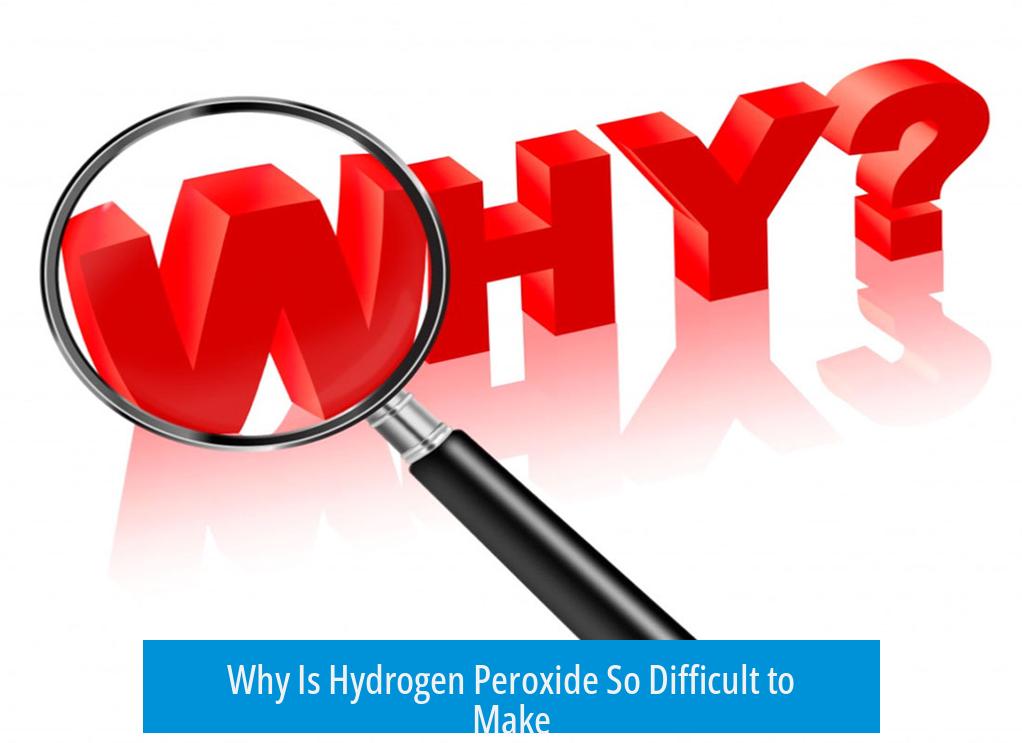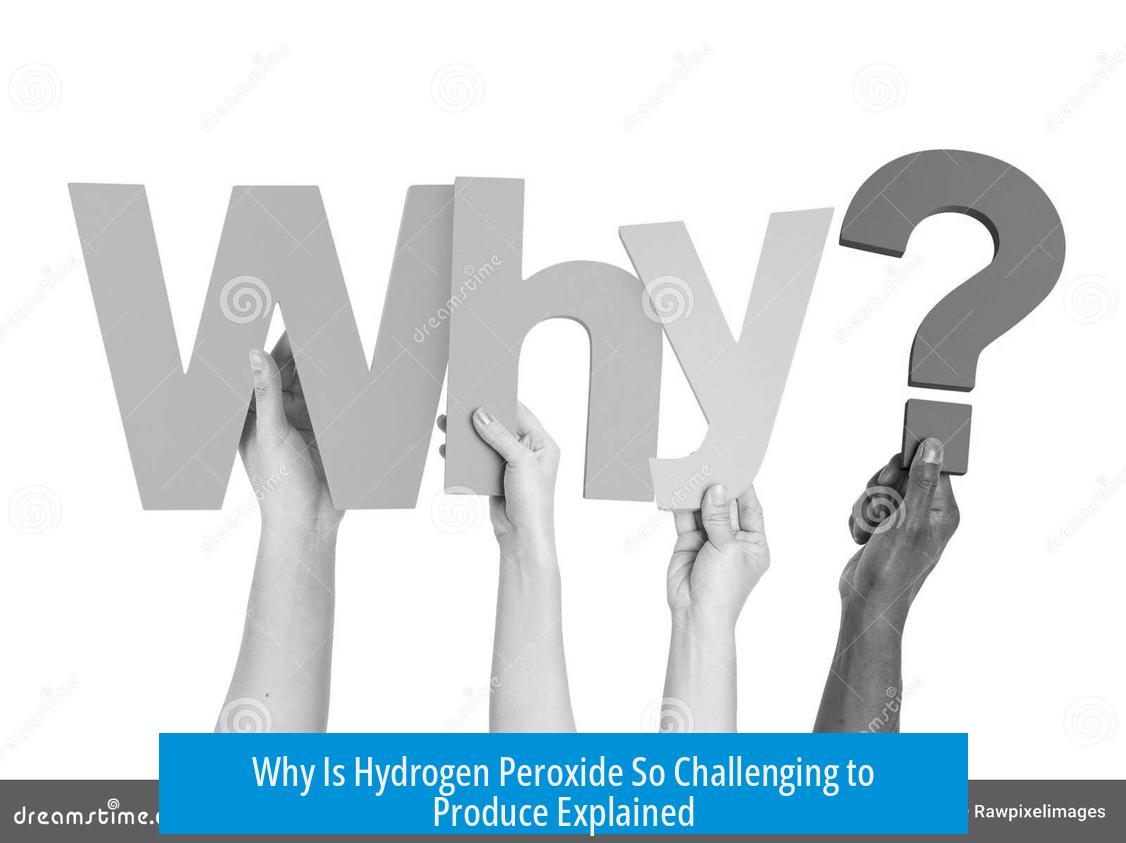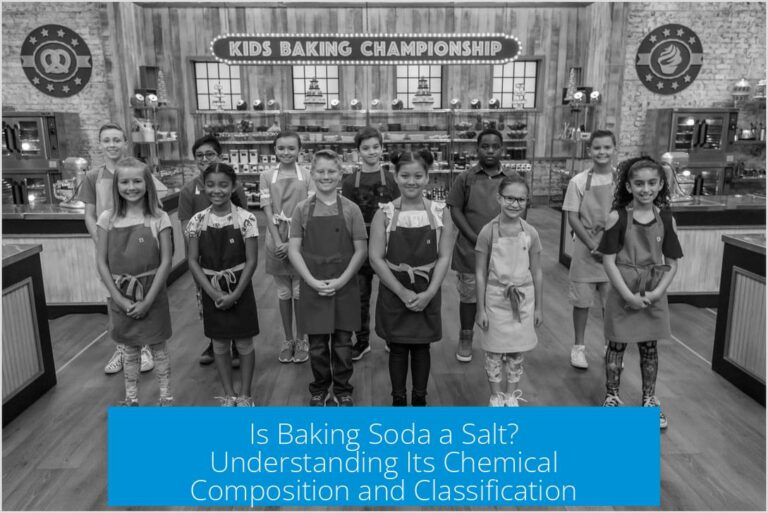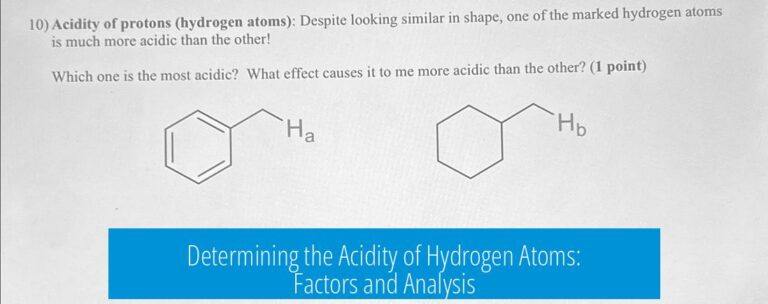Why Is Hydrogen Peroxide So Difficult to Make?

Hydrogen peroxide is difficult to make because it is thermodynamically unstable, highly reactive, and prone to competing reactions that favor its breakdown into water and oxygen. Its synthesis requires careful control of energy input and reaction conditions to prevent decomposition and side reactions.
Instability of Hydrogen Peroxide
Hydrogen peroxide (H2O2) tends to break down naturally into water (H2O) and oxygen (O2). This decomposition is thermodynamically favorable, meaning the products are more stable than H2O2 itself.
Despite its natural tendency to decompose, hydrogen peroxide shows kinetic stability—it does not break down instantly because of an energy barrier. However, supplying excess energy, such as heat or flame, easily overcomes this barrier, causing rapid breakdown.
Reactivity and Radical Formation
Hydrogen peroxide readily forms radicals, highly reactive molecules that can initiate unwanted side reactions. These reactions compete with the formation of hydrogen peroxide during synthesis, reducing yields.
The radical formation and other competing reactions make it tough to control the synthesis process. Chemists must prevent these side pathways to avoid premature decomposition and maximize hydrogen peroxide formation.
Challenges in Electrochemical Production
Electrochemical methods reduce O2 at a cathode to produce hydrogen peroxide. However, oxygen gas has low solubility in water, limiting the reaction’s efficiency.
Special gas-diffusion electrodes improve oxygen availability at the cathode. Additionally, engineers use electrocatalysts to selectively generate hydrogen peroxide rather than water, improving production rates and purity.
Despite advances, controlling selectivity and overcoming low oxygen solubility remain major hurdles in electrochemical hydrogen peroxide synthesis.
Summary of Key Points
- Hydrogen peroxide is thermodynamically unstable; it naturally decomposes into water and oxygen.
- Kinetic barriers provide temporary stability but can be overcome by excess energy.
- Radical formation leads to side reactions that hinder controlled synthesis.
- Oxygen’s low solubility limits electrochemical production efficiency.
- Electrocatalysts and specialized electrodes help improve selectivity and yield but challenges remain.
Why does hydrogen peroxide tend to break down easily during production?
Hydrogen peroxide naturally decomposes into water and oxygen. This thermodynamic instability makes it hard to keep formed peroxide from breaking down quickly.
How does hydrogen peroxide’s reactivity affect its synthesis?
It forms radicals readily, which leads to many competing reactions. These side reactions interfere with clean production of hydrogen peroxide.
Why is controlling energy input important in making hydrogen peroxide?
Too much energy can cause hydrogen peroxide to break down into water and oxygen. Careful control is needed to avoid triggering this decomposition.
What challenges do electrochemical methods face in producing hydrogen peroxide?
Oxygen gas has low solubility, requiring special electrodes for efficient reaction. Also, finding catalysts that favor peroxide formation over other products is difficult.
How do electrocatalysts help in hydrogen peroxide synthesis?
Electrocatalysts can improve selectivity by favoring hydrogen peroxide production during water electrolysis. However, achieving high selectivity remains a challenge.





Leave a Comment